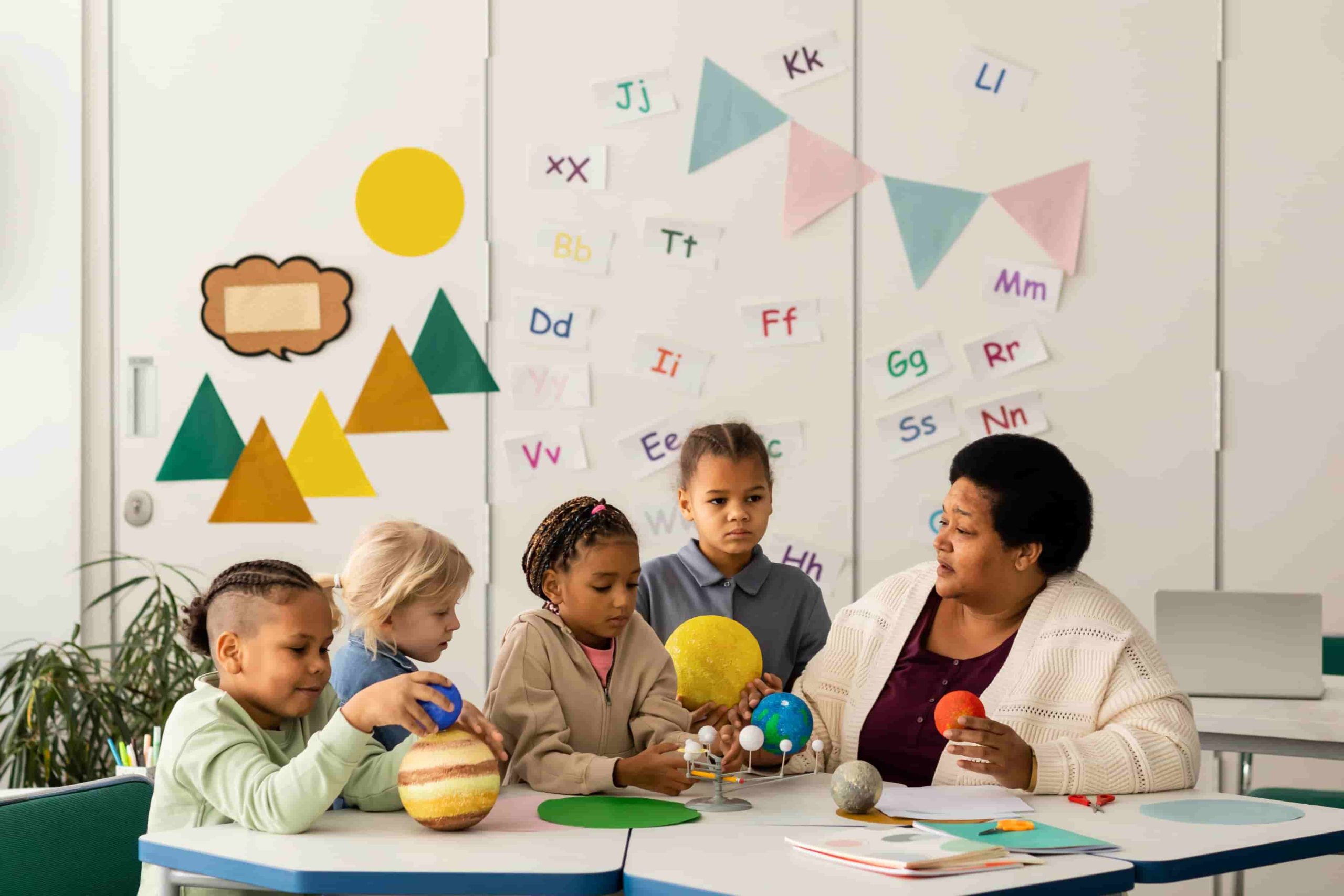What is Pedagogy in the Early Years?

- by Admin
What is Pedagogy in the Early Years?
Pedagogy, a term derived from the Greek word “paidagogos,” meaning “teacher” or “guide of children,” includes the methods and practices used in teaching. In the context of early years, pedagogy refers to the strategies and approaches employed in educating young children, typically from birth to the age of eight.
The early years are critical for cognitive, social, emotional and physical development and effective pedagogy during this period lays a strong foundation for lifelong learning and well-being.
Why is Pedagogy Important in the Early Years?
Pedagogy in the early years is important because it lays the foundation for a child’s overall development and future learning. During these formative years, children experience rapid growth in cognitive, social, emotional and physical domains. Effective pedagogical approaches, such as play-based and enquiry-based learning, nurture children’s natural curiosity and foster critical thinking, problem-solving and social skills.
Moreover, early years pedagogy supports the development of secure, respectful relationships, which are essential for children’s emotional well-being and learning engagement. It promotes a child-centred approach, recognising and catering to individual differences, ensuring that every child receives the support they need to thrive.
Key Pedagogical Approaches in Early Years
Effective pedagogy in early years education encompasses a variety of approaches designed to support the holistic development of young children. These approaches recognise the importance of nurturing cognitive, social, emotional and physical growth through tailored teaching methods. Here are some key pedagogical approaches in early childhood education:
1. Play-Based Learning
Play-based learning is fundamental in early childhood education. It acknowledges that play is a natural and vital part of children’s development. Through play, children explore the world around them, develop social skills and enhance their cognitive abilities.
Play-based learning can be structured or unstructured, allowing children to engage in activities that interest them while educators guide and extend their learning experiences.
2. Enquiry-Based Learning
Enquiry-based learning focuses on encouraging children to ask questions, explore and investigate. This approach helps develop critical thinking and problem-solving skills.
Educators play an important role in facilitating enquiry by providing resources, posing open-ended questions and creating a stimulating environment that prompts children to think deeply and seek answers.
3. Child-Centered Approach
A child-centred approach places the child at the centre of the learning process. It recognises that each child is unique, with individual interests, needs and learning styles.
Educators adopting this approach tailor their teaching methods to accommodate these differences, ensuring that each child receives the support and challenges they need to thrive.
4. Reggio Emilia Approach
Originating from Reggio Emilia, Italy, this approach emphasises the importance of a child’s environment in learning. It promotes self-directed, experiential learning in relationship-driven environments.
The Reggio Emilia approach values the role of parents and community in education and views children as competent, resourceful and active participants in their learning journey.
5. Montessori Method
Developed by Dr. Maria Montessori, this method emphasises independence, freedom within limits and respect for a child’s natural psychological development. The Montessori method uses specially designed materials that cater to children’s developmental stages, allowing them to learn at their own pace through hands-on activities.
Principles of Pedagogy in the Early Years Learning Framework
Effective early years pedagogy is guided by several key principles that ensure a holistic and comprehensive approach to education. These principles are embedded in various early years learning frameworks worldwide which serve as a guide for early childhood educators.
1. Holistic Development and Learning
Early childhood pedagogy emphasises the holistic nature of development. It recognises that physical, social, emotional and cognitive domains are interconnected and must be nurtured together. Educators create environments and experiences that support all areas of a child’s development.
2. Secure, Respectful and Reciprocal Relationships
Building secure and respectful relationships with children is foundational to effective pedagogy. These relationships create a sense of safety and trust, essential for children’s learning and development. Educators engage in meaningful interactions, listen to children and value their perspectives.
3. High Expectations and Equity
High expectations for every child’s learning and development are important. This principle involves providing equitable opportunities for all children, regardless of their background, abilities or circumstances. Educators strive to identify and remove barriers to learning, ensuring inclusive practices that support diversity.
4. Respect for Diversity
Respecting and valuing diversity is a core principle in early years pedagogy. It involves recognising and celebrating cultural, linguistic and individual differences. Educators create inclusive environments that reflect and honour the diversity of the children and families they serve.
Enrol Your Child at Wimbledon Day Nursery Today!
Pedagogy in the early years is a dynamic and multifaceted approach to education, emphasising the importance of nurturing a child’s holistic development. Effective pedagogy in early years childcare is not just about teaching content; it’s about fostering a love for learning, encouraging exploration and supporting each child’s unique journey.
Get the perfect nurturing environment for your child at Wimbledon Day Nursery in the UK. Our experienced staff provides personalised care and a rich, play-based learning curriculum that fosters your child’s development and curiosity. Enrol today to give your child the best start in life with our safe, inclusive and stimulating setting.
Contact us now to schedule a visit and see why Wimbledon Day Nursery is the ideal choice for your little one’s early years education.
